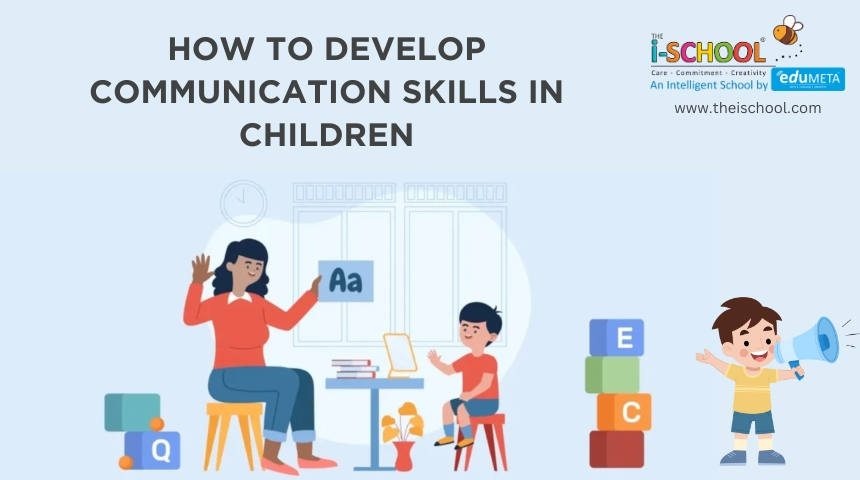How to Develop Communication Skills in Children

The world is a symphony of sounds, and your child is eager to join the orchestra! Communication skills are the instruments that allow them to express themselves, connect with others, and navigate their world. From those first babbles to complex conversations, here’s how you Develop Communication Skills in Children:
The Early Years (0-3):
Talk, Talk, Talk! Narrate your day, sing songs, and read stories with animated voices. This exposes children to language patterns and encourages them to mimic sounds.
Respond and Engage: Make eye contact, smile, and respond to your child’s coos and babbles. This shows them that communication is a two-way street and motivates them to keep trying.
Label Everything! As you go about your day, point out objects and name them. This helps children build their vocabulary and understand the world around them.
Play Peek-a-Boo and Other Games: Interactive games encourage turn-taking, anticipation, and simple communication.
Embrace Nonverbal Communication: Pay attention to your child’s gestures and facial expressions. Respond to their needs and help them learn to express themselves nonverbally as well.
The Preschool Years (3-5):
Ask Open-Ended Questions: Instead of “Do you like this?”, ask “What color is this toy?” or “Can you tell me what this animal is doing?”. This encourages children to elaborate and think critically.
Sing Songs and Read Aloud: Continue reading stories and singing songs, but encourage participation! Have your child join in on refrains, answer questions within the story, or tell you what they see in the illustrations.
Let Them Lead the Conversation: During playtime or outings, follow your child’s interests and ask questions about what they’re doing or seeing. This allows them to practice using language in a natural setting.
Model Good Communication: Speak clearly, use complete sentences, and avoid baby talk. Children learn by imitating, so show them how effective communication works.
Embrace Storytelling: Encourage your child to tell you stories about their day, their dreams, or their imaginary world. Listen attentively and ask questions to spark their creativity.
Beyond the Basics:
Limit Screen Time: Excessive screen time can hinder language development. Prioritize interactive play and real-life experiences that encourage communication.
Make Mistakes Okay: Don’t correct every mispronunciation. Focus on understanding what your child is trying to communicate, and gently offer the correct word or phrase.
Celebrate Milestones: Acknowledge and celebrate your child’s communication progress, no matter how small. This builds their confidence and motivates them to keep learning.
Remember, communication is a journey, not a destination! By creating a language-rich environment, providing opportunities for interaction, and fostering a safe space for your child to express themselves, you’re helping them develop the essential skills they need to thrive in life.
